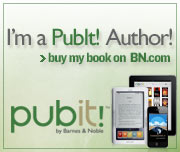You Should Avoid This While Writing Your Story
Can you guess what the answer to this title is?
Predictability.
Don’t you hate it when you’re reading a book or watching a movie and you know what’s going to happen before it does?
I do.
Like the movie World War Z.
Toward the end of the movie, I knew what was going to happen. In fact, I told Kevin before it did, and I was right. Actually, the entire script was predictable.
As a writer, you want to avoid having your story be too transparent where the reader will be able to predict the outcome before it even happens. However, you want to capture their interest and keep them guessing. Therefore, you need to leave clues and red herrings to mislead or distract them. Then in the end when everything in your tale comes to light, your reader will be thrilled to discover she was wrong all along or was close to figuring it out.
Another movie I want to mention:
Wild Things with Neve Campbell and Denise Richards.
Have you seen it?
This is a great example of what I'm talking about.
The writer did a fine job on this one.
I remember when Kevin and I first watched it we were like, "No way! That’s fucked up." As we kept watching the movie we gaped at each other a couple of times because we weren’t expecting the things that had happened.
It was great, especially the ending.
The story and the plot totally surprised us.
This is what you want to accomplish.
I do, however, think in some genres you have to be somewhat predictable, like in romance. Most readers of that genre want a happy ending. So, yeah, in the end, the couple overcomes their adversity and falls into each other’s arms, proclaiming their undying love for one another or something along those lines. You
can, though, still make the rest of the story less predictable.
Example: You can have two different paths the main character is forced to choose from. Write both of them to be equally compelling and plausible with a dusting of suspense on the life-changing events. You can create it to where it's a nail-biting decision where either way the character has a lot to lose.
Besides leaving clues and red herrings, you can also do foreshadowing, which is when you as the author hint at certain plot developments that may come to fruition later in the story. It’s another way to capture the reader’s interest and prepare them for what might unfold.
I do those things in my Beyond the Eyes trilogy, and I’ve actually had fans come up to me and ask about a character or situation they want to know the outcome of. I’m keeping them guessing and they’re so involved in the trilogy that they’re fishing for answers from me. I just tell them they have to read the next book to find out.
Evil?
Nah. It makes me happy I’m doing my job and have people actually emotionally invested in my characters and story.
That’s what you want.
And yeah truth be told, you can’t please everyone.
People are going to hate your story.
I have a few who hate mine and have said nasty things about it. But that's part of the business.
In short, there are some genres you can’t avoid the expected predictability.
But regardless, if you write a tale where the audience is looking for a happy ending that you must deliver, you can still keep them guessing throughout the story by spinning it with suspense and uncertainty.
It’ll keep them turning the page long after bedtime.
So throw in some hints, scatter a few red herrings and do a little foreshadowing.
Hints + red herring + foreshadowing= suspense and unpredictability.
Those three things carefully executed into your story will delight your readers in the end.
.png)














0 comments: